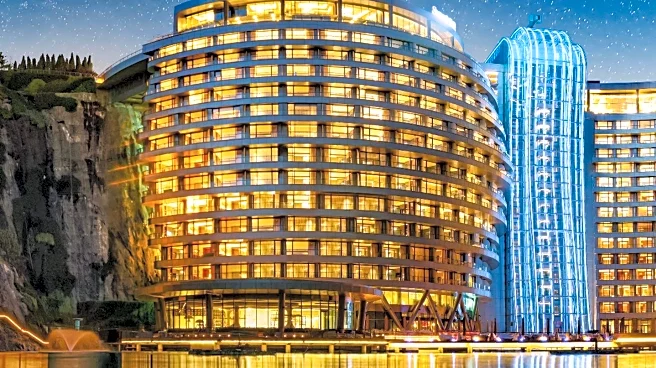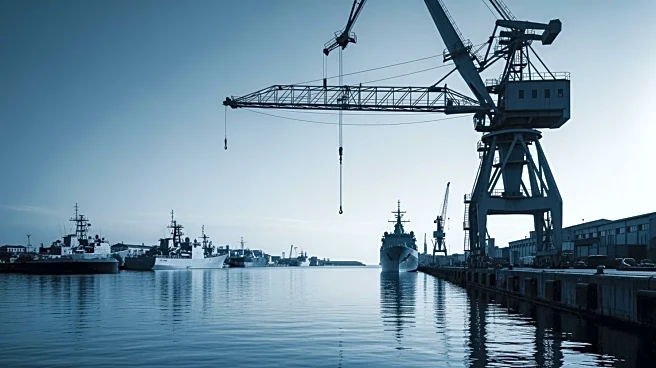What's Happening?
Former Brazilian President Jair Bolsonaro was arrested on Saturday over concerns he was plotting to escape house arrest. The arrest was ordered by Brazil's Supreme Court after information surfaced about a planned vigil by Bolsonaro's supporters, which
indicated a high possibility of an attempted escape. Bolsonaro's electronic ankle monitor was reportedly tampered with, further supporting the court's decision. Bolsonaro's lawyers have vowed to appeal the arrest, dismissing claims of an escape attempt. The arrest comes days before Bolsonaro was due to begin a 27-year prison sentence for leading a coup attempt.
Why It's Important?
The arrest of Bolsonaro is a significant development in Brazil's political landscape, as it underscores the judiciary's commitment to preventing any attempts to undermine democratic processes. Bolsonaro's arrest could have implications for Brazil's political dynamics, potentially affecting the far-right political factions and influencing public opinion. The decision to arrest him preemptively highlights the judiciary's role in maintaining order and preventing potential unrest. This move may also impact Brazil's international relations, particularly with countries that have expressed concern over Bolsonaro's actions.
What's Next?
Bolsonaro's arrest is expected to be discussed and voted on by a Supreme Court panel, which previously convicted and sentenced him. The panel's decision could determine the next steps in Bolsonaro's legal proceedings and his potential imprisonment. Additionally, the arrest may lead to increased political tensions and protests from Bolsonaro's supporters, who have been vocal in their opposition to his conviction. The situation may also prompt reactions from international leaders and organizations monitoring Brazil's political stability.
Beyond the Headlines
The arrest of Bolsonaro raises questions about the broader implications for Brazil's democracy and the potential for political polarization. The judiciary's actions may be seen as a test of Brazil's democratic institutions and their ability to handle high-profile cases involving former leaders. The situation also highlights the challenges faced by countries in balancing legal accountability with political stability, as well as the role of public demonstrations in shaping political discourse.















